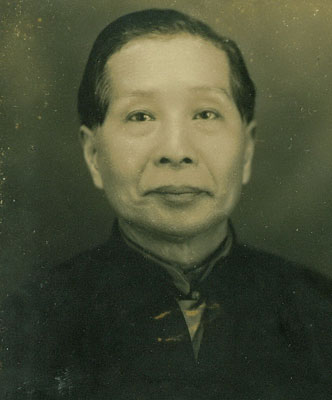首页 > Cuiheng Village > Historical celebrities
Yang Xinru

Yang Xinru (1868~1946), nicknamed Dijing, also known as Zhaorong, Zhengle or Xinru, from Cuiheng Village, was a childhood friend of Sun Yat-sen in Cuiheng Village. Yang was ambitious, studious, clever and retentive in his childhood, but did not like Chinese classics, and had no intention of attending the imperial competitive examination. He often talked about national affairs with Sun Yat-sen, and had many unique insights and pertinent ideas, which was appreciated by Sun Yat-sen. In 1895, when Sun Yat-sen founded the Revive China Society with his companions, Yang also joined the Revive China Society, and mobilized human and material resources in Zhongshan, Macao, Hong Kong and Taiwan. He took part in the Guangzhou and Huizhou Uprisings, and donated most of his family properties to the revolution. Yang, Sun Yat-sen, Lu Haodong and Yang Heling were later called the “Four Heroes of Cuiheng Village”.
In 1895, after the failure of the Guangzhou Uprising, Yang served as an accountant at a foreign tea firm in Taipei. In 1897, when Chen Shaobai developed the revolutionary organization in Taiwan, he knew patriots through Yang, and set up the Taiwan branch of the Revive China Society at Yang’s house in November, which was the first revolutionary base in Taiwan. In the autumn of 1898, Chen Shaobai raised revolutionary funds of over 3,000 silver dollars with the assistance of Yang, etc. In 1899, Sun Yat-sen went to Taiwan to plan an inshore revolutionary base together with Yang. He first set up a liaison office at Shinkicho, Taipei, and later moved to Umeyashiki to plan the Huizhou Uprising actively. After the failure of the Huizhou Uprising, Sun Yat-sen went to Japan, while Yang stayed in Taiwan to make arrangements. In the subsequent Huanghuagang Uprising, Yang went to Hong Kong for support by order. After the failureof the Uprising, he stayed in Taiwan to establish a revolutionary base as directed by Sun Yat-sen. After the foundation of Republican China, Sun Yat-sen wanted Yang to develop state policies along with him, butno transferwas made due to the overseas contact affairs needed to bedealt with in Taiwan.Therefore, Yang and his eldest son Yang Dongying stayed in Taiwan, using their business as a cover to communicate intelligence within the revolutionary comrades in the Mainland. During the subsequent Second Revolution, Constitution Protection Movement, etc., revolutionists run hither and thitherthroughout the whole country, and most of themestablished liaison offices inShanghai, Taiwan and Hong Kong.In Taiwan,Yang was the head ofthe Taiwan liaison office and madesignificant contribution to the revolution activities.
During the Anti-Japanese War, Yang was concerned and extremely worried about state affairsall day.Although he cannot talk with his familyabout that, they could feel hisdepressed mood. When the Japanese surrendered, and Taiwan and the Penghu Islands returned to our homeland, Yang said in laughter, “I have no pity today.” When Sun Ke knew that Yang was still in Taiwan and led a hard life, he wrote to Taiwan Governor Chen Yi, asking him to take good care of Yang. He was often worried about the social and political reality of China after the Anti-Japanese War, and expected Dr. Sun Yat-sen to build a unified and harmonized nation. In the autumn of 1946, Yang died of disease in Taiwan, and told his son Yang Dongying, etc. while dying, “I was the earliest follower of Dr. Sun Yat-sen’s revolution, and am glad that Taiwan has been reclaimed. I have no legacy for you. You can either stay in Taiwan or return to the hometown. However, you should be self-reliant wherever you’re, and should not bring disgrace to our family.”
